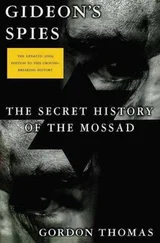Buscher ignored Eatherly’s question and launched into a solemn recital of how the flats had been formed, how the pioneer wagons of 1846 had foundered in the salt. For those who liked exploring, enthused Buscher, the tracks of some of the wagons were still embedded in the flats.
“So will our bones be if we stay here!”
The words were spoken by a frustrated first lieutenant, Jacob Beser, the squadron’s radar officer. Beser longed for action. When Britain had gone to war, he had tried to join the Royal Air Force. His parents had stopped him, insisting he complete his engineering studies at Johns Hopkins University. The day after Pearl Harbor, Beser had overcome parental opposition and enlisted in the Army Air Force. He had eventually become one of the service’s highest-rated radar officers. Radar was new and growing in importance. That did not impress Beser—not unless he could use his knowledge “to kill a few Nazis.”
Beser was a Jew. A small, wiry, quick-witted man, fiercely proud of his middle-class background, he held strong opinions on almost everything. They did not always make him popular. Some of his fellow officers thought him an oddball. The enlisted men looked upon him as a “longhair” because of his university background.
When the squadron was posted to Wendover, Beser had applied for a transfer to a combat unit. His request had been turned down.
But now, listening to the urbane Buscher struggling to extol the virtues of Wendover, Beser began to feel excitement. “The place sounded so goddam awful that there just had to be a good reason for my being there,” he later recalled.
Tibbets’s old friend, Major Thomas Ferebee, had also arrived. His formidable combat record in Europe made Ferebee one of the most seasoned and respected bombardiers in the air force. He was the perfect choice to train the 393rd’s bombardiers in the precision-bombing techniques that Professor Ramsey had told Tibbets were going to be essential for dropping an atomic bomb.
Although he was glad to see Ferebee, unexpected problems stopped Tibbets from sitting down with him for a relaxed talk.
For a start, there was the delicate position of Classen. The 393rd’s CO was a Pacific veteran with a distinguished combat record. His leadership qualities had made the squadron a cohesive unit. To move him at this stage would be unthinkable. Tibbets had discussed the situation with Classen, explaining that in effect the squadron would have two commanders: Classen would be responsible for its day-to-day running; Tibbets would make all the important policy decisions. He had told Classen he trusted this somewhat unusual arrangement would work. Classen had shown no real reaction.
Tibbets had tried to sweeten matters by giving Classen a briefing on their unique mission. He hoped that would instill a mood of equally divided responsibility “in all but a few areas.” But after Classen had gone, Tibbets wondered whether dual command was really possible.
Other matters soon pushed such thoughts from his mind.
Since breakfast, two men had been closeted with him. He knew the older man well. Lieutenant Colonel Hazen Payette had served with him in England and North Africa as intelligence officer. A shrewd and penetrating questioner, Payette was at Wendover to supervise security at Tibbets’s request.
Major William L. “Bud” Uanna had arrived unannounced. He politely explained that Colonel Lansdale had sent him, plus some thirty agents detached from the main Manhattan Project, to help “police” the 393rd.
Tibbets liked Uanna’s style. He was coolly pleasant and uninterested in anything but his work.
Uanna had arrived with a bulky briefcase. The files it contained were a further reminder to Tibbets of the vast intelligence-gathering resources of the Manhattan Project.
There was a detailed dossier on each member of the 393rd. The information had been gathered from their families, friends, school reports, employment records, and medical files.
Many thousands of man-hours and dollars had been spent on tapping telephones, secretly opening letters, collecting details of extramarital affairs, homosexual tendencies, and political affiliations. The dossiers represented the most thorough secret investigation until then carried out in the name of the U.S. government.
Uanna produced the file on Eatherly. It showed the pilot was an obsessional gambler, with an “emotional problem.”
Tibbets studied Eatherly’s service record. He had logged 107 flying hours as a pilot ferrying Lockheed Hudsons to Canada; 103 hours flying LB-30s; a spell on antisubmarine patrol in the Panama Canal Zone; regular transfers from one squadron to another. A normal enough flying record. Eatherly’s fitness reports spoke of his “flamboyance” and of his being “an extrovert.” Tibbets knew the type. He had flown with “wild Texans” like Eatherly in Europe. They frequently got into trouble on the ground. But they were good pilots. Tibbets decided he would let Eatherly remain in the 393rd.
By late morning, the jokers in the 393rd were running out of steam. One of them had been sharply reprimanded by an MP for trying to post a slogan:
WELCOME TO ALCATRAZ
The first letters were being written to loved ones. A number contained the inevitable phrase: Wendover is a good place to be—from.
Uanna’s agents had infiltrated the squadron, carrying forged papers which allowed them to pose as clerks, cooks, even a garbage detail. They were not always successful. Captain James Strudwick found a man checking the wiring in his quarters who “didn’t know one end of a socket from another.” Mess officer Charles Perry discovered two men in the mess hall “who had trouble distinguishing a soup ladle from a carving knife.” Executive officer John King was astonished to see “a man dressed in a line chief’s overalls whose hands had never come near a wrench.”
But not all the newcomers were security men.
Technical Sergeant George Caron arrived dusty and thirsty from a trans-American journey, with his collar unbuttoned and wearing a flying jacket, a double breach of military regulations.
The MPs at the gate pounced on the diminutive air gunner. They marched him to the orderly room in the headquarters building. There, a policeman began to berate Caron.
Suddenly, from an adjoining office, Caron heard a familiar voice. “Is that you, Bob?”
“Sure is, Colonel.”
Tibbets was one of the few officers who called Caron by his nickname, “Bob.”
“Come on in.”
Smiling impishly at the stunned policemen, Caron strolled from the orderly room in to see Tibbets. They greeted each other like the old buddies they were.
Caron had been gunnery instructor on Tibbets’s B-29 training program. Feet up on his desk, Tibbets now explained to the gunner why he had sent for him. “Bob, I need a man who knows what he’s doing—and can teach others to do a similar job. And keep their mouths shut.”
“Colonel, I won’t even mention I’m here,” said Caron.
Tibbets smiled, reestablishing the easy contact which had marked their previous working relationship. He did not find it unusual to be imparting information to a noncom while senior officers in the 393rd still had no idea of what was happening. It was the way Tibbets preferred to do things, dealing first with the men who had already proved themselves to him. Tibbets believed that the privileges of rank were limited; men had to earn the right to his confidence.
On the B-29 program, onlookers had spoken scathingly of “Tibbets’s private air force.” He had shrugged such criticism aside. He meant to adopt the same policy at Wendover, sometimes confiding to enlisted men information he would not entrust to an officer.
The first time he saw his new outfit assembled, he was not overly impressed. They were trying too hard to look nonchalant, “the way they had seen Alan Ladd do it in the movies.” Tibbets thought they looked decidedly inexperienced. He guessed most of the officers were in their early twenties. The enlisted men seemed even younger. Ferebee and Caron know what it’s all about, thought Tibbets, the others are trying to pretend they do.
Читать дальше












